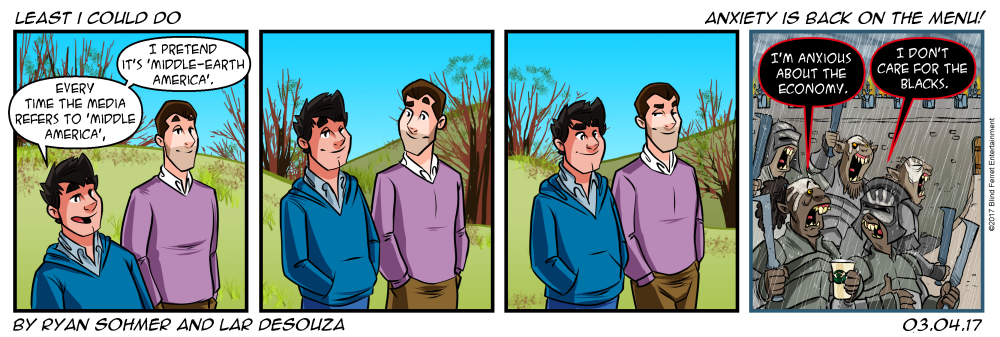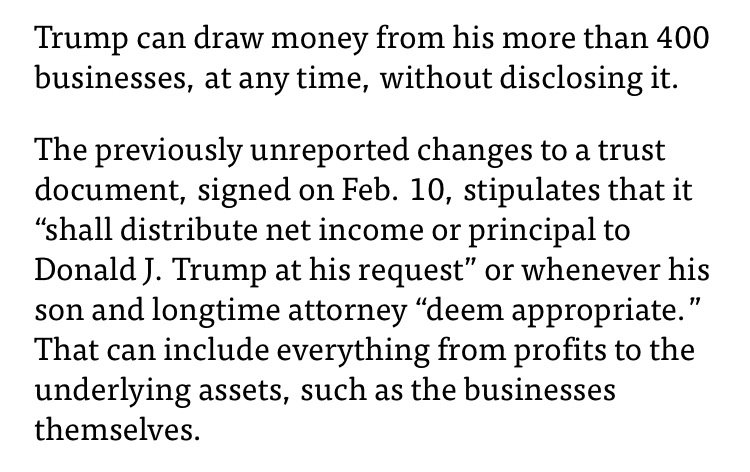So since we're back here once again. What is the particular purpose of looking at three arbitrary locales? Beyond an attempt to classplain #notallracistvoting I guess.
I mean there's this kind of obsessive need (by white people) to figure out "why are these other white people racist" as if there'll be some eureka moment to show it's the egg not the chicken. Okay sure there's some degree of need for these voters to come back into the fold - I understand that. And is #economicanxiety contributing to underlying racial resentment being displayed in voting patterns, I think probably, to varying degrees. Is it being easily turned on the "other" sure. Is everyone chomping at the bit to join a lynch mob, no, obviously - but there's a strange idea that you need to get to this point to be like a real racist. (I guess perhaps then racial resentment, our PC version of racist should be the go to.)
But for the most part it often feels like these discussions are more about absolving responsibility. Downplaying racism/racial resentment as just a symptom. And soothing one's own sensibilities that surely not that many people can be racists. That deep down everyone's good people, because the magnitude of racists makes it implausible.
People are racist.
Lots of people.
This post just staggers me. Like, I shouldn't need to type the response to this. In *any* other context, you'd find it entirely obvious, and be on completely the other side of the argument. So, let me try and put it in that context, where you'd be coming to the same answers as me.
Say, you're a politician. You notice that crime rates are really high. You try to find out why they're high, and create a committee to find the answer. The committee comes back to you and says: one of the best predictors of committing a crime is being poor. Why? Because of they have less income so more reason to do it, they feel less valued by society and are less likely to follow societal norms, because vulnerable people often want to find ways to express power, and all sorts of other complicated reasons.
Your response is to say: no, that's not a thing. By saying 'poverty is associated with crime', you're making excuses for poor people! You're absolving their responsibilities! Actually, crime is better predicted by people who don't value social norms, there's no reason to tie poverty into this!
You can see this argument is nonsense. You can see it, I know it. You would never, ever make it. Explaining what motivates people to act in certain ways - that's not absolving them. Explanation is not forgiveness, an explanation is not an excuse. It's not redemption. People who got suckered into white supremacy and voted for Trump? They did something wrong. Morally wrong. In exactly the same way that someone who grew up in a poor neighbourhood still does something bad when he beats up his wife.
But explanation
is a necessary part of solution. If you know that poverty is a significant contributor to crime rates, then you know that by attacking poverty, you can reduce crime. If you know that belonging to a certain class and experiencing the kind of uncertainty and fundamental decrease in quality of life that this class has seen makes you more likely to fall for white supremacist narratives, then you know that by addressing the plight of this class, you can reduce the rate at which they vote for white supremacists.
You know this re: poverty and crime. If we were having this discussion on poverty and crime, you'd all be in agreement with me. I'm sure you would. Every single one of you would be with me there and saying: look, poverty has an impact on crime rates, if we do something about poverty, we could drive down crime! None of you would say that this is excusing or absolving criminals. So why, for the exact same form of argument (we need to understand why people act in certain ways to reduce the number of people acting that way in the future) are you suddenly saying: lol, white people, excusing racism again - when what we're saying is
very clearly not that?
Here's my hypothesis: you were out of touch. The platform your candidate ran on, the platform and candidate you really strongly identified with, got rejected by an awful lot of people - including a lot of people who, while they may have the blessings of white privilege, are still carry an awful lot of burdens; are still poor and ignored by the political system. And that really hurts. It hurts knowing that you didn't understand these people as well as you thought, and it hurts that your country rejected your ideas and your candidate, that you invested yourself in a bit.
Consequently, you've chosen to just reject everything. If you can neatly explain what happened as: everyone who disagrees with me is irresolvably evil, well, there's nothing for you to do. You don't have to do the difficult question of asking where you went wrong and how to address that. You just have to say: our platform was tremendous, the very best platform, tremendous; and then wait two decades for everyone who disagrees with you to die, or attack your allies by saying they're just trying to excuse racism.
I understand that hurt. Losing the 2015 Labour election was a blow to me. Ed Miliband was like, halfway to my ideal candidate. Unfortunately, he was missing the important parts, and that contributed to his loss, but he was closer at least than any other significant candidate in my lifetime. Being rejected by my own country like that hurt. Or, an even closer example, Brexit. It would be so incredibly easy to just say that all the Brexshiter were lazy, stupid dolts with nothing else to them but rah rah pints, stones, and tuppence. So easy. But I can't do that, because I know we have to win in 2020, or the values I want never come back. And that means listening. It means going to the northern working class mining towns that Labour held for decades upon decades upon decades, and finding out why we lost, and what we can do about it.


